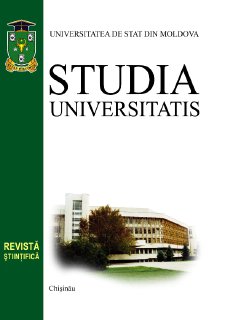DIPLOMATIC MISSION AND PROTOCOL AND CEREMONIAL CUSTOMS AS A TOOL FOR PROMOTING THE IMAGE OF THE REPUBLIC OF MOLDOVA
Ludmila RUSNAC Universitatea de Stat din Moldova
Abstract
Diplomatic missions play a vital role in the collaboration between states in different fields, but also in the negotiation
activity between states, to avoid or resolve crisis situations. The Republic of Moldova has open diplomatic missions in all the states with which it has developed friendly relations and economic, political, commercial and cultural collaboration. Embassies are diplomatic representations of category 1 and are managed by the ambassador (who is also called the head of the mission), his Majesty being the official representative of the state accredited in the country of residence, and Consulates are diplomatic representations of category 2, being led by a consul or general consul. To begin his mission within the embassy, it is necessary for the ambassador to be accredited in the respective country. The embassy is an inviolable structure, and all officials of diplomatic rank of the embassy have diplomatic immunity. Periodically, diplomatic agents participate in various protocol activities, as guests or hosts, in order to carry out their duties. These protocol activities are carried out according to certain rules, in a certain order and within a certain framework, so that every person of diplomatic rank must know the protocol and ceremonial usages. At the same time, in diplomatic activity, it is absolutely necessary to respect the national particularities of diplomatic protocol.
Keywords: diplomatic mission, consular service, protocol, ceremonial, diplomatic official, reception, etiquette, ambassador.


